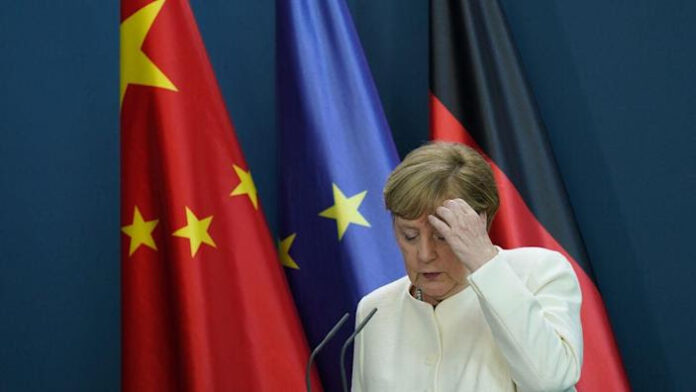The European Parliament voted overwhelmingly to freeze efforts to ratify a landmark investment deal with China until Beijing lifts sanctions imposed in retaliation for the EU’s condemnation of China’s human rights abuses.
Why it matters: It’s a major blow to the relationship at a decisive moment, as tensions between Washington and Beijing have left Europe caught between the trans-Atlantic alliance and the economic temptations of greater access to the Chinese market.
- Pfizer to seek COVID-19 vaccine approval in Mexico for children aged 12-15
- Cameroon jails transgender women for attempted homosexuality
Background: EU leaders and China finalized the long-delayed Comprehensive Agreement on Investment in December, appearing to defy resistance from the European Parliament and a request for consultations from the incoming Biden administration.
- The deal would open up both markets to investment and commit Beijing to ending certain trading practices, thus strengthening economic ties between the EU and its second-largest trading partner.
- The finalized agreement came at a time of increasing international scrutiny of China’s abuses against Uyghur Muslims, including the use of forced labor.
- The European Commission insisted to skeptical EU lawmakers that it would “remain uncompromising as to using all tools possible to eradicate any form of forced labour,” and that the investment deal would play an important role in that effort.
Everything changed in March, when the EU joined the U.S., U.K. and Canada in imposing sanctions against several Chinese officials involved in the mass detention of Uyghurs and other ethnic minorities in the northwest region of Xinjiang.
- China responded furiously, sanctioning 27 EU ambassadors, several think tanks and scholars, and prominent members of the European Parliament who had been critical of Beijing, accusing them of spreading “lies and disinformation” and meddling in China’s domestic affairs.
- For members of the EU Parliament, which had yet to ratify the agreement, the sanctions were a deal-breaker. “It seems unthinkable that our Parliament would even entertain the idea of ratifying an agreement while its members and one of its committees are under sanctions,” member of Parliament Marie-Pierre Vedrenne said at the time, according to Politico.
Between the lines: Despite the uproar in the European Parliament, German Chancellor Angela Merkel hailed the investment deal as a “cornerstone” of economic ties between China and the EU as recently as late April.
The bottom line, via Axios China expert Bethany Allen-Ebrahimian: The Chinese government has bungled its relationship with the EU, just as it seemed that Beijing had successfully driven a wedge between a Trump-weary Europe and the Biden administration.
SOURCE: YAHOO NEWS





